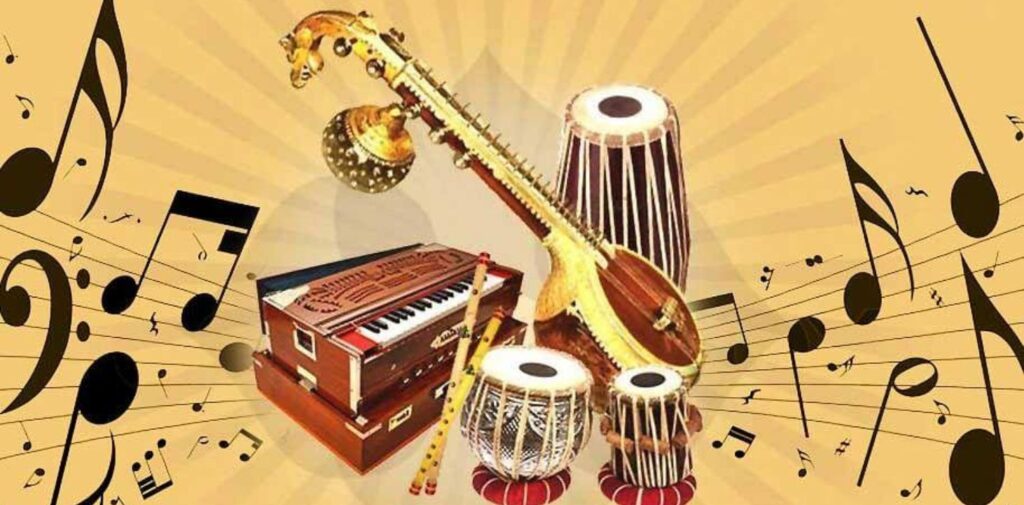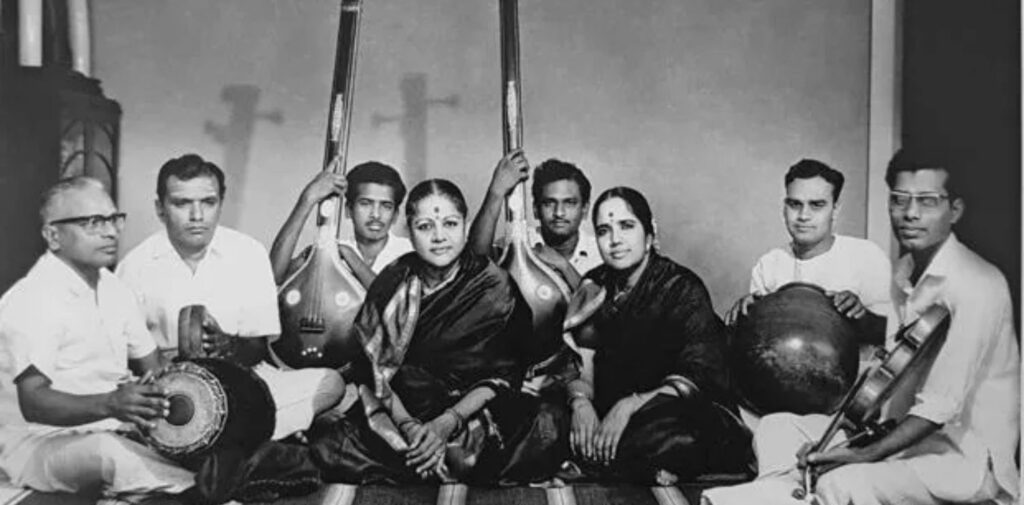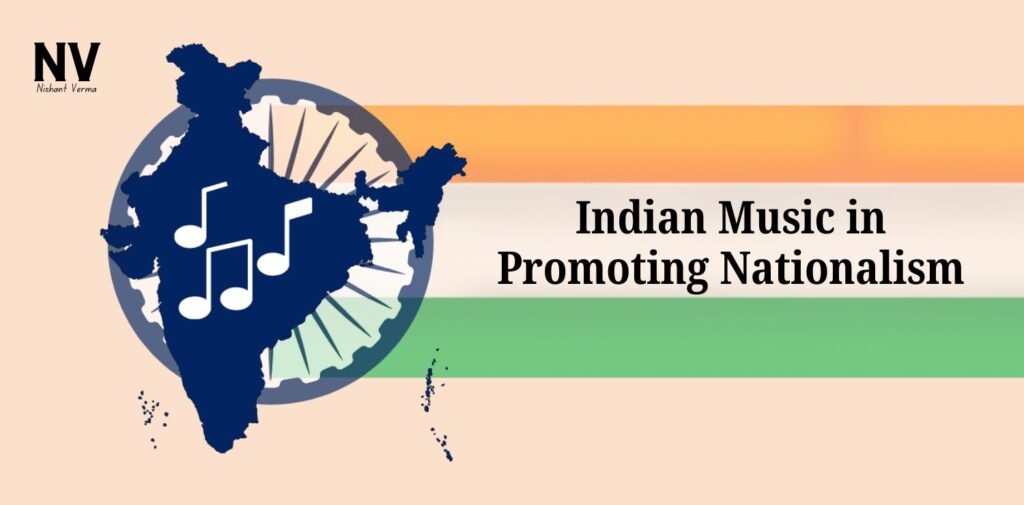India has a rich and diverse culture, and one of its most significant aspects is its music. From classical ragas to folk tunes and contemporary Bollywood hits, Indian music has always been an essential part of the country’s identity. But Indian music has also played a crucial role in promoting nationalism, especially during the struggle for independence and in post-independence India. In this article, we will explore how music has helped shape and nurture a sense of national pride, unity, and identity.
Music as a Tool for Unity
One of the most powerful ways Indian music has contributed to nationalism is by fostering a sense of unity among people of different cultures, languages, and backgrounds. India is a land of incredible diversity, with each state and region having its own distinct culture, language, and traditions. Yet, music has always been a common thread that brings people together. Songs that reflect national pride and unity often bring individuals from various parts of India together, reminding them that they share a common heritage and purpose.
For example, patriotic songs like Vande Mataram and Jana Gana Mana have become national symbols, sung at events and gatherings across the country. These songs transcend linguistic and regional differences and evoke a sense of unity. People from different states, speaking different languages, can all connect with the same songs, which symbolize India’s rich cultural diversity while also celebrating its oneness.

Music in the Indian Independence Movement
Indian music played a pivotal role in the Indian independence movement. During the colonial era, when India was under British rule, music became a tool for resistance. Many songs were written with the intention of stirring the spirit of patriotism and encouraging people to stand up against British oppression.
1. Patriotic Songs and Their Impact
Patriotic songs composed during the freedom struggle served as a source of inspiration for the masses. One of the most iconic patriotic songs, Vande Mataram (composed by Bankim Chandra Chattopadhyay and later turned into a song by Rabindranath Tagore), became an anthem for many freedom fighters. Its powerful message of devotion to the motherland and unity resonated with people all over the country, regardless of their social or economic status.
Another famous song, Sarfaroshi Ki Tamanna, was composed by the revolutionary Ram Prasad Bismil. It quickly became a battle cry for the youth of India, urging them to take up arms for their country’s freedom. The song motivated many to join the fight for independence, and its spirit continues to inspire generations.
2. Folk Music and Regional Movements
Folk music also played a significant role in promoting nationalism, especially in rural areas. Songs in regional languages reflected the struggles of the people and their desire for freedom. These folk songs were easily relatable and played a critical role in spreading the message of resistance, unity, and patriotism. The songs were passed down orally from generation to generation, ensuring that the spirit of resistance was kept alive in the hearts of ordinary people.
For example, the Bhartiya Janata Geet sung during the freedom movement in various parts of India galvanized the masses and sparked a sense of national pride. These folk songs gave voice to those who did not have access to mainstream forms of communication, yet their impact was just as powerful in awakening national consciousness.

Music in Post-Independence India
After India gained independence in 1947, music continued to play a significant role in shaping national identity and promoting unity. Music became a medium through which people could express their love for the country and celebrate its progress. The music in promoting nationalism didn’t end with independence; in fact, it evolved with time.
1. Bollywood and National Identity
Bollywood, the heart of the Indian film industry, has produced numerous songs that celebrate the idea of India and its unity. Patriotic songs in Bollywood films have always been a powerful tool for evoking national pride. Songs like Maa Tujhe Salaam from the album Vande Mataram and Chak De India from the movie Chak De India are some of the most iconic examples.
These songs transcend the boundaries of language, region, and culture. A Hindi song, for example, may be loved and appreciated by people who speak different languages. Bollywood songs that celebrate India’s victories, its history, and its diversity have become integral to the country’s cultural fabric.
2. Music as a Voice for Social Issues
Beyond just celebrating nationalism, music in India has also been used to address social issues, which are essential for building a cohesive and just society. Songs that call for equality, justice, and unity contribute to fostering nationalistic sentiments. For example, songs that advocate for the rights of women, marginalized communities, and farmers also promote a sense of solidarity and collective progress.
Music has the power to bring people together for a common cause. For instance, songs like Aaj Phir Jeene Ki Tamanna Hai from the movie Guide and Yeh Desh Hai Veer Jawanon Ka from Naya Daur remind the people that the true essence of nationalism is not just in celebrating the country, but also in addressing its challenges and working together to overcome them.
Music’s Influence on Youth and National Pride
The younger generation of India has always been at the forefront of nationalism, and music plays a vital role in shaping their national identity. Youth connect with the rhythm, melody, and message of patriotic songs. They also use music as a tool for expressing their love for their country and to inspire others to work towards a better India.
In recent years, the rise of music festivals and social media has made patriotic songs even more accessible to the youth. These platforms have helped spread nationalistic music and ideas to a wider audience. For example, modern musicians are now creating contemporary versions of old patriotic songs, making them relevant to the youth of today.

Music in National Celebrations and Commemoration
Music continues to play a central role in national celebrations such as Republic Day, Independence Day, and other national events. On these occasions, patriotic songs are performed, and the entire nation comes together in celebration and remembrance of the struggles of the freedom fighters. National events like these remind citizens of their responsibility to uphold the values of freedom, unity, and integrity that music so often represents.
At schools, public spaces, and government buildings, people sing the national anthem, Jana Gana Mana, with pride, while also engaging in community singing and dancing that bring the country together.
Conclusion: Indian Music
In conclusion, Indian music has played an instrumental role in shaping the nation’s identity, especially in fostering nationalism. From the freedom struggle to contemporary times, music has been a tool for resistance, unity, and national pride. It has bridged divides, united people, and inspired countless individuals to contribute to the nation’s growth and prosperity.
Whether through folk tunes, patriotic songs, or Bollywood anthems, Indian music continues to be a powerful force in promoting nationalism and unity in the country. Music doesn’t just celebrate India’s past—it helps shape its future, encouraging the younger generation to embrace their cultural heritage while working toward a better, more united India. So, the next time you hear a patriotic tune, remember the immense role it plays in shaping national consciousness and pride.




